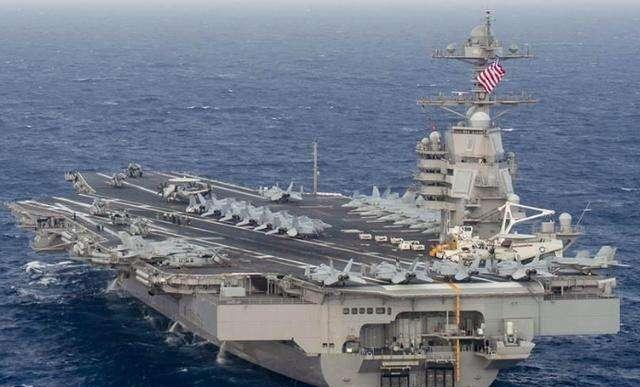Sinking a U.S. nuclear-powered aircraft carrier will certainly lead to U.S. nuclear retaliation?
A large number of people have always believed that if the NUCLEAR-powered aircraft carrier of the US military is sunk by other countries in war, the US military's disposition is bound to launch nuclear retaliation against the opponent. At first glance, this view seems to have some truth, after all, the US nuclear-powered aircraft carrier can be said to be a symbol of US military strength, but also a symbol of US hegemony and national dignity, and it is difficult for the US military to tolerate such a "war beast" being killed. The key question, however, is whether the United States would dare to launch a nuclear retaliation so easily?
For now, there are not many countries in the world that have the ability to sink US nuclear-powered aircraft carriers, and almost all countries with this capability have their own nuclear strike forces. Although the U.S. military has thousands of nuclear warheads of different explosive yields in stock, and also has launch carriers such as Militia III,B1B, B2, Ohio-class strategic nuclear submarines, etc., the nuclear counterattack capabilities of other countries are not vegetarian.
For example, Russia carries 16 Strategic Nuclear Submarines of the North Wind with 8,000 km of Intercontinental Ballistic Missiles in Brava. And once a nuclear war breaks out, the destructive capability of nuclear weapons is not something that ordinary countries can afford, and the same is true for a superpower like the United States.
Although the US military has deployed anti-missile systems such as patriots and THAAD in most parts of the world, plus the cooperation of space-based early warning systems in space, which can effectively deal with some conventional ballistic missiles, from the interception experiments of the US military, the success rate of its anti-missile network interception of intercontinental missiles is very low.
Even if one or two are intercepted, as long as one of them falls into the U.S. mainland, it will have very serious consequences. This point also needs to be seriously considered by the United States when launching nuclear retaliation. Therefore, sinking the US nuclear-powered aircraft carrier will incur nuclear retaliation, and thus regarding the US nuclear-powered aircraft carrier as a target that cannot be attacked is a false proposition in itself. Putting "nuclear retaliation" on the lips at every turn is actually more to scare oneself, after all, the United States also has to weigh and weigh when it moves "nuclear."
